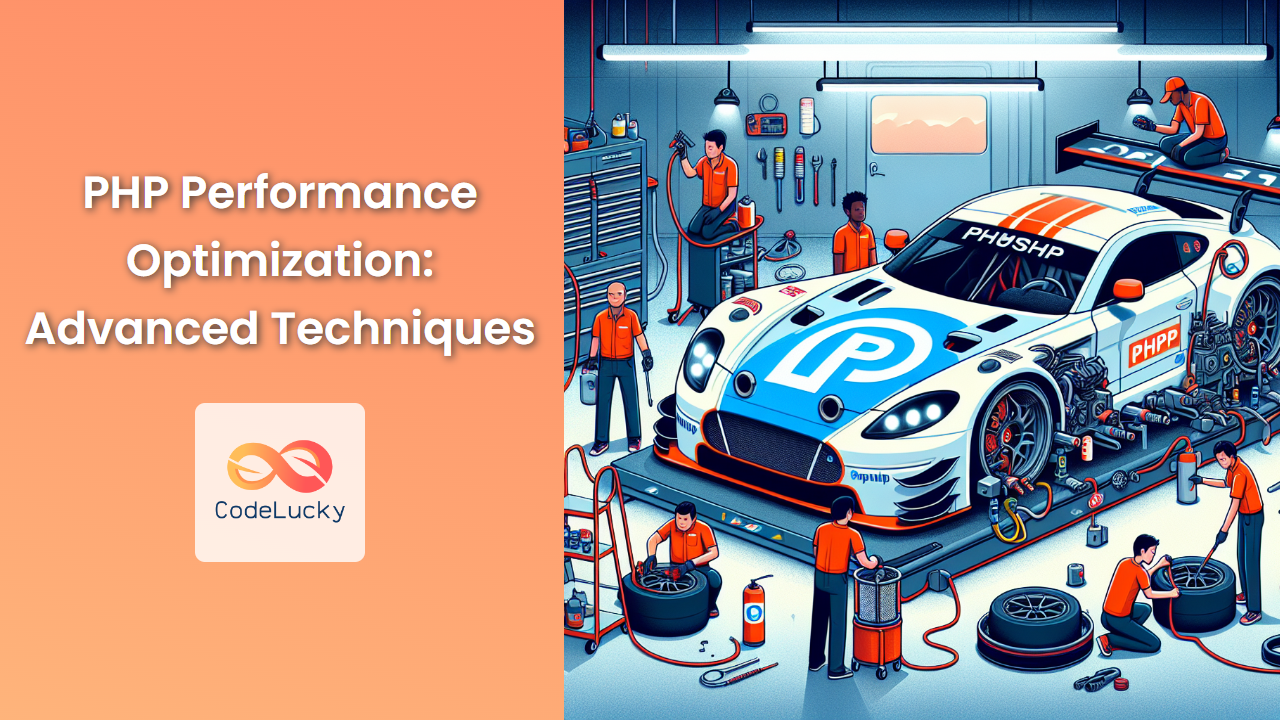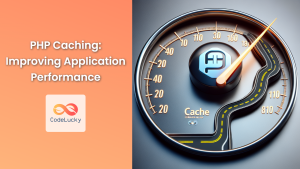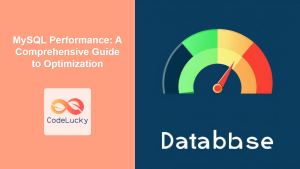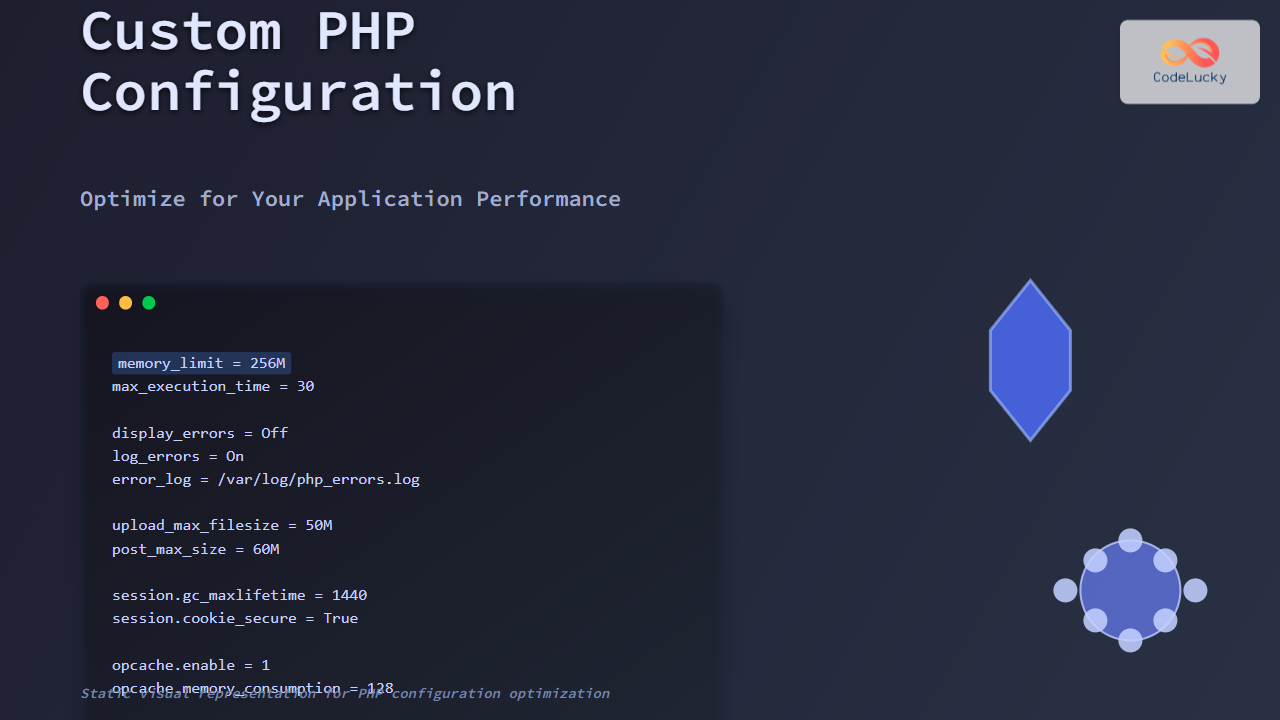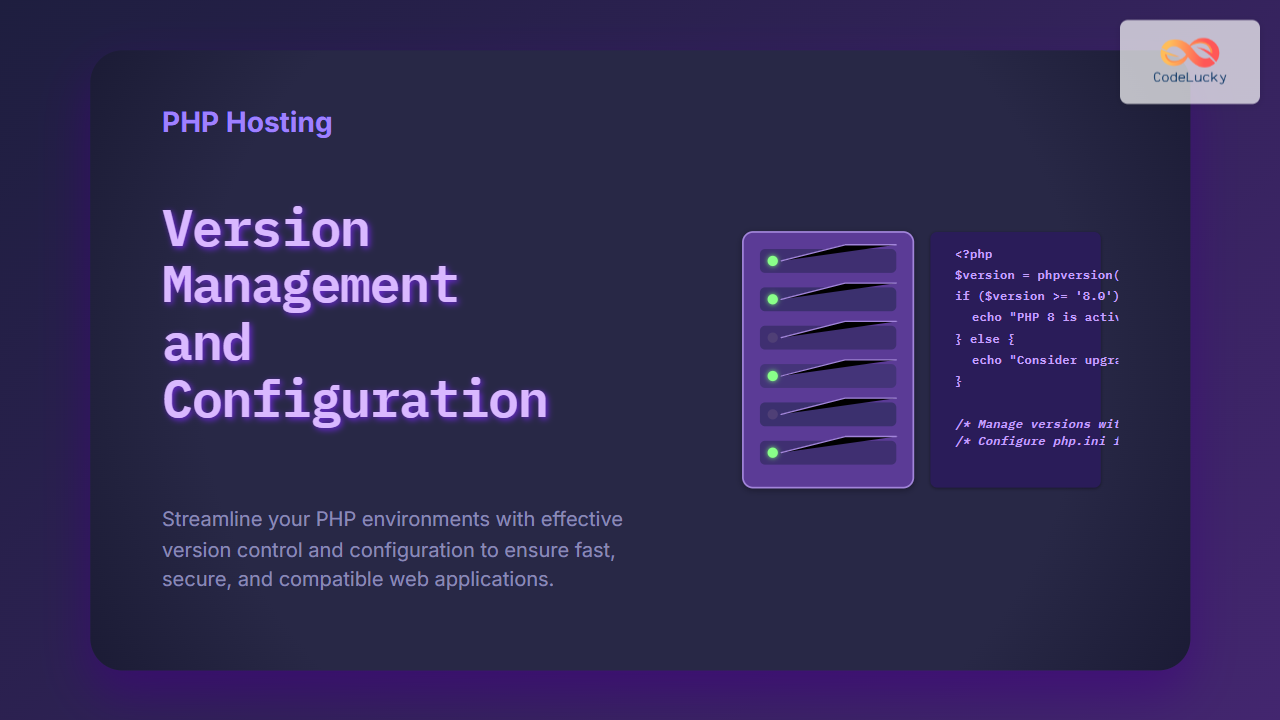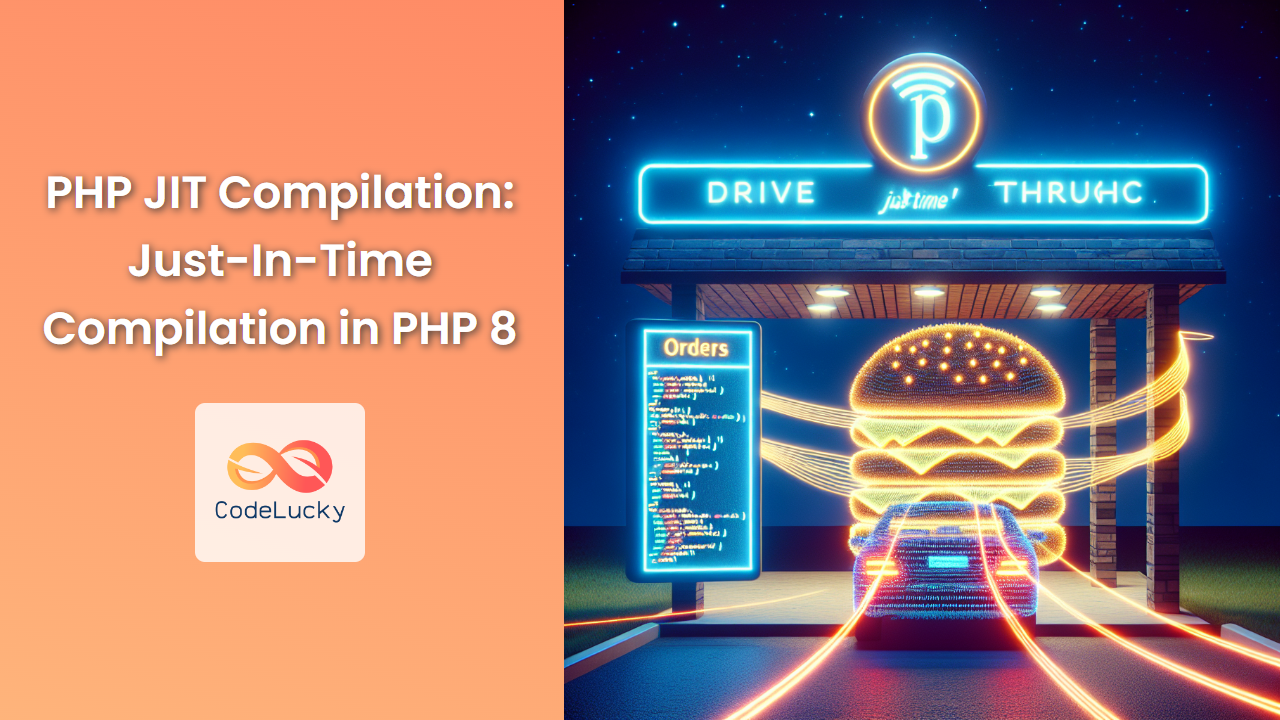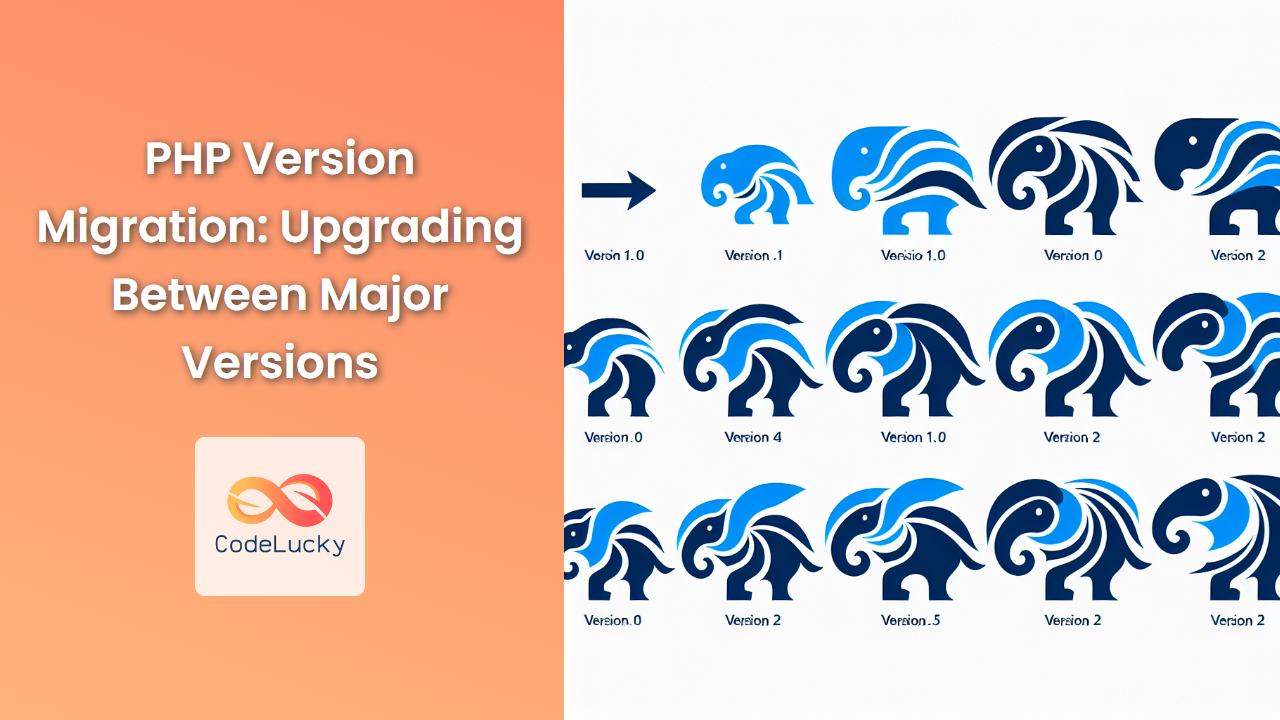In the world of web development, performance is king. As websites and applications grow in complexity, optimizing PHP code becomes crucial for maintaining speed, efficiency, and user satisfaction. This comprehensive guide will delve into advanced techniques for PHP performance optimization, providing you with the tools and knowledge to supercharge your applications.
Understanding PHP Performance
Before we dive into optimization techniques, it's essential to understand what affects PHP performance. PHP, being an interpreted language, can sometimes lag behind compiled languages in terms of raw speed. However, with proper optimization, PHP can deliver excellent performance for web applications.
🔍 Key factors affecting PHP performance:
- Script execution time
- Memory usage
- Database queries
- File I/O operations
- Network requests
Profiling Your PHP Application
The first step in optimization is identifying bottlenecks. PHP offers several profiling tools to help you pinpoint performance issues.
Using Xdebug
Xdebug is a powerful extension for PHP that provides debugging and profiling capabilities.
<?php
xdebug_start_trace('/tmp/trace');
// Your code here
xdebug_stop_trace();
This will generate a trace file that you can analyze to find slow functions and memory leaks.
Leveraging PHP's Built-in Profiler
PHP comes with a built-in profiler called Xhprof. Here's how you can use it:
<?php
xhprof_enable();
// Your code here
$xhprof_data = xhprof_disable();
$xhprof_runs = new XHProfRuns_Default();
$run_id = $xhprof_runs->save_run($xhprof_data, "test");
This will save profiling data that you can later visualize using tools like Xhprof UI.
Code Optimization Techniques
Now that we've identified performance bottlenecks, let's explore advanced techniques to optimize PHP code.
1. Use Opcode Caching
Opcode caching significantly improves PHP performance by storing precompiled script bytecode in memory.
<?php
// Check if OPcache is enabled
if (function_exists('opcache_get_status')) {
$opcache_status = opcache_get_status();
echo "OPcache is " . ($opcache_status['opcache_enabled'] ? "enabled" : "disabled");
}
💡 Tip: Configure OPcache in your php.ini file for optimal performance.
2. Implement Lazy Loading
Lazy loading can significantly reduce initial load times by deferring the initialization of objects until they're needed.
<?php
class LazyLoader {
private $object;
private $class;
public function __construct($class) {
$this->class = $class;
}
public function __call($method, $args) {
if (!$this->object) {
$this->object = new $this->class();
}
return call_user_func_array([$this->object, $method], $args);
}
}
// Usage
$heavyObject = new LazyLoader('HeavyClass');
$heavyObject->someMethod(); // HeavyClass is instantiated only when needed
3. Optimize Database Queries
Efficient database queries are crucial for PHP performance. Let's look at some advanced techniques:
Use Prepared Statements
Prepared statements not only protect against SQL injection but also improve performance for repeated queries.
<?php
$stmt = $pdo->prepare("SELECT * FROM users WHERE status = ?");
$stmt->execute(['active']);
$activeUsers = $stmt->fetchAll();
$stmt->execute(['inactive']);
$inactiveUsers = $stmt->fetchAll();
Implement Query Caching
For frequently accessed, rarely changing data, implement query caching:
<?php
function getCachedQuery($key, $callback, $ttl = 3600) {
$cache = new Memcached();
$cache->addServer('localhost', 11211);
$result = $cache->get($key);
if ($result === false) {
$result = $callback();
$cache->set($key, $result, $ttl);
}
return $result;
}
// Usage
$users = getCachedQuery('all_users', function() use ($pdo) {
return $pdo->query("SELECT * FROM users")->fetchAll();
});
4. Optimize Loops
Loops are often performance bottlenecks. Here are some advanced optimization techniques:
Use array_map() for Transformations
Instead of using a foreach loop to transform an array, use array_map():
<?php
$numbers = range(1, 1000000);
// Slower
$squares = [];
foreach ($numbers as $number) {
$squares[] = $number * $number;
}
// Faster
$squares = array_map(function($number) {
return $number * $number;
}, $numbers);
Avoid Calling Functions in Loop Conditions
<?php
$array = range(1, 1000000);
// Slower
for ($i = 0; $i < count($array); $i++) {
// Do something
}
// Faster
$count = count($array);
for ($i = 0; $i < $count; $i++) {
// Do something
}
5. Use Output Buffering
Output buffering can improve performance by reducing the number of separate output operations:
<?php
ob_start();
// Generate your output here
$output = ob_get_clean();
echo $output;
6. Implement Caching Strategies
Caching is a powerful technique for improving PHP performance. Let's explore some advanced caching strategies:
Full Page Caching
For pages that don't change frequently, implement full page caching:
<?php
function getPageCache($key) {
$file = "cache/{$key}.html";
if (file_exists($file) && (time() - filemtime($file) < 3600)) {
return file_get_contents($file);
}
return false;
}
function setPageCache($key, $content) {
$file = "cache/{$key}.html";
file_put_contents($file, $content);
}
$cacheKey = md5($_SERVER['REQUEST_URI']);
if ($cachedContent = getPageCache($cacheKey)) {
echo $cachedContent;
exit;
}
ob_start();
// Generate your page content here
$content = ob_get_clean();
setPageCache($cacheKey, $content);
echo $content;
Object Caching
For complex objects that are expensive to create, implement object caching:
<?php
class User {
public static function getById($id) {
$cache = new Memcached();
$cache->addServer('localhost', 11211);
$cacheKey = "user_{$id}";
$user = $cache->get($cacheKey);
if ($user === false) {
// Fetch user from database
$user = fetchUserFromDatabase($id);
$cache->set($cacheKey, $user, 3600);
}
return $user;
}
}
7. Optimize File Operations
File operations can be a significant performance bottleneck. Here are some advanced techniques to optimize them:
Use Memory-Mapped Files for Large Files
For large files, use memory-mapped files to improve performance:
<?php
$file = new SplFileObject("large_file.txt");
$map = $file->fmap(0, $file->getSize(), SplFileObject::MAP_SHARED);
// Read from the memory-mapped file
$content = $map->read($map->getSize());
// Write to the memory-mapped file
$map->write("New content");
Batch File Operations
Instead of performing multiple small file operations, batch them together:
<?php
$data = [];
for ($i = 0; $i < 1000; $i++) {
$data[] = "Line {$i}\n";
}
file_put_contents('output.txt', implode('', $data), FILE_APPEND);
8. Leverage PHP 7+ Features
PHP 7 and later versions introduced several performance improvements. Let's explore some advanced features:
Use Typed Properties
Typed properties, introduced in PHP 7.4, can improve performance by reducing type checks:
<?php
class User {
public int $id;
public string $name;
public ?string $email;
}
$user = new User();
$user->id = 1;
$user->name = "John Doe";
$user->email = null;
Utilize the Null Coalescing Operator
The null coalescing operator (??) can replace verbose isset() checks:
<?php
// Instead of
$username = isset($_GET['user']) ? $_GET['user'] : 'nobody';
// Use
$username = $_GET['user'] ?? 'nobody';
Measuring Performance Improvements
After implementing these optimization techniques, it's crucial to measure the impact. Here's an advanced way to benchmark your PHP code:
<?php
function benchmark($callback, $iterations = 1000) {
$start = microtime(true);
$memStart = memory_get_usage();
for ($i = 0; $i < $iterations; $i++) {
$callback();
}
$end = microtime(true);
$memEnd = memory_get_usage();
return [
'time' => ($end - $start) / $iterations,
'memory' => ($memEnd - $memStart) / $iterations
];
}
// Usage
$result = benchmark(function() {
// Your code here
});
echo "Average execution time: " . number_format($result['time'] * 1000, 4) . " ms\n";
echo "Average memory usage: " . number_format($result['memory'] / 1024, 2) . " KB\n";
This benchmarking function will help you quantify the performance improvements of your optimizations.
Conclusion
PHP performance optimization is an ongoing process that requires a deep understanding of both PHP internals and your specific application needs. By implementing these advanced techniques, you can significantly improve the speed and efficiency of your PHP applications.
Remember, optimization should always be data-driven. Profile your application, identify bottlenecks, apply these techniques where they'll have the most impact, and always measure the results.
With these advanced PHP performance optimization techniques in your toolkit, you're well-equipped to create lightning-fast, efficient PHP applications that can handle high traffic and complex operations with ease. Happy optimizing!
🚀 Pro Tip: Always test your optimizations thoroughly in a staging environment before deploying to production. Performance improvements should never come at the cost of functionality or reliability.

